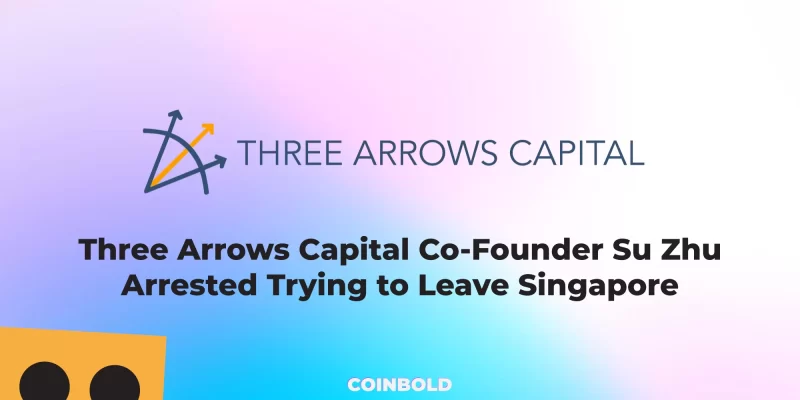Su Zhu, a co-founder of the now-defunct cryptocurrency hedge fund Three Arrows Capital (3AC), was arrested at an airport in Singapore when attempting to leave the country. This comes after Zhu failed to comply with a court order to cooperate with an investigation into 3AC’s collapse, resulting in a 4-month prison sentence.
Singapore authorities detained Zhu on September 25th based on a committal order obtained by 3AC’s court-appointed liquidators, Teneo. The order compelled Zhu to cooperate with inquiries into his activities as a 3AC founder and provide accountability surrounding the hedge fund’s operations.
“The joint liquidators had applied for and obtained the committal order against Mr Zhu on 25 September 2023 as a consequence of his deliberate failure to comply with a court order,” Teneo said in a statement.
3AC’s other co-founder, Kyle Davies, received a similar 4-month sentence but remains at large currently as his whereabouts are unknown. Earlier in the year, Singapore’s financial regulator banned both Zhu and Davies from conducting regulated business activities in the country.
The liquidators have an uphill battle piecing together 3AC’s convoluted operations and tracing investor funds. Zhu’s arrest indicates they are taking aggressive measures to investigate the hedge fund’s opaque inner workings. But without the founders’ cooperation, many questions around 3AC’s strategies and controls remain unanswered.
The Swift Unraveling of a Crypto Giant
At its peak, Three Arrows Capital managed over $10 billion in assets, making it one of the largest cryptocurrency hedge funds globally. 3AC began rapidly unravelling after the Terra ecosystem imploded in May 2022, wiping out the value of TerraUSD (UST) and Luna tokens which 3AC held in sizeable quantities.
With billions suddenly erased from its portfolio and margin calls mounting, 3AC was unable to meet capital obligations to lending counterparties. The firm filed for Chapter 15 bankruptcy in July 2022 after failing to receive a bailout from investors. At the time, 3AC had over $3.5 billion in outstanding debts to creditors.
The opaque nature of 3AC’s operations and fund management meant its collapse sent shockwaves throughout crypto markets already reeling from broad asset sell-offs. Investors and lenders are still attempting to ascertain the true scale of losses.
Co-Founders Nowhere to Be Found
Liquidators have struggled to piece together 3AC’s complex web of global entities and financial dealings with little input from Zhu and Davies.
Shortly after 3AC’s implosion, the co-founders apparently went into hiding by relocating to Dubai in the United Arab Emirates. Their lack of cooperation with ongoing legal proceedings and investigations continues to stoke outrage.
Davies also ignored the Singapore court order resulting in his sentencing, but his current location remains unknown. With both founders now considered fugitives, liquidators are employing all available avenues to hold them accountable.
This latest arrest indicates authorities are aggressively pursuing enforcement actions, though the process of tracking down assets and distributing funds to creditors will likely drag on for years. For now, Zhu faces at least 4 months imprisonment in Singapore.
The Need for Crypto Regulation and Reform
The Three Arrows Capital saga further highlights the pressing need for sensible cryptocurrency regulations worldwide. While innovation should not be stifled, reasonable guardrails could have protected investors and prevented contagion across crypto markets.
Had 3AC been subject to prudent capital controls, liquidity requirements, and public disclosures – red flags around its unsustainable risks and Ponzi-like operations could have been caught sooner. The firm’s opaque structure allowed it to obfuscate problems until it was too late.
Hopefully regulatory reform can prevent similar collapses in the future. But change will not come easily given the challenges of coordination across borders and divergent national policies. In the meantime, cryptocurrency investors must exercise extreme caution, diversification and skepticism before entrusting funds to any entities promising unrealistically high returns.


